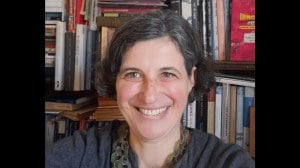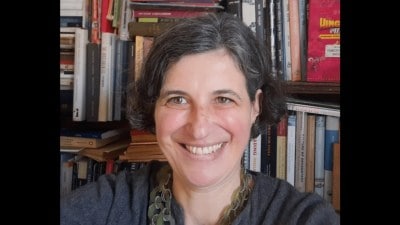Gyanvapi not mosque, it is Lord Vishwanath himself, says CM Yogi
The CM was speaking at the inaugural session of an international seminar on 'Contribution of Nathpanth in the Creation of a Harmonious Society' at Deen Dayal Upadhyaya Gorakhpur University.
 "Our saints and sages have consistently emphasised that untouchability is not only a barrier to spiritual practice but also an obstacle to national unity and integrity,” the Uttar Pradesh CM said. (File photo)
"Our saints and sages have consistently emphasised that untouchability is not only a barrier to spiritual practice but also an obstacle to national unity and integrity,” the Uttar Pradesh CM said. (File photo)Chief Minister Yogi Adityanath Saturday said that Gyanvapi, which some people “unfortunately” call a mosque, is in fact Lord Vishwanath himself.
The CM was speaking at the inaugural session of an international seminar on ‘Contribution of Nathpanth in the Creation of a Harmonious Society’ at Deen Dayal Upadhyaya Gorakhpur University. Yogi follows the Nath sect and also is head priest of the Gorakhnath Math.
During the program, Yogi Adityanath elaborated on the tradition of saints and sages, describing it as a force that unites the society and the nation. He spoke in detail about Adi Shankar, who was born in Kerala and who established spiritual centres in all four corners of the country.
“When Adi Shankar arrived in Kashi, Lord Vishwanath sought to test him. As Adi Shankar went to bathe in the Ganga during Brahma Muhurta, Lord Vishwanath appeared before him disguised as an untouchable. When Adi Shankar asked him to step aside, Lord Vishwanath, still in that form, said to him, ‘If you are truly full of advaita knowledge, you should not see only the physical body. If Brahma is the ultimate truth, then I possess the same Brahma as you’,” he said.
According to the CM, when a stunned Adi Shankar asked him who he was, he replied, “Jis Gyanvapi ki saadhna ke liye – durbhagya se uss Gyanvapi ko aaj log dusre shabdon mein masjid kehte hain lekin woh Gyanvapi saakshaat Vishwanath hi hain – jis Gyanvapi ki upasana ke liye aap chal kar yahan aaye hain, main uska saakshaat swaroop Vishwanath hoon (The Gyanvapi for whose worship you have come here – unfortunately some people today call it a mosque, but Gyanvapi is Lord Vishwanath himself – I am its embodiment.)”
“Our saints and sages have consistently emphasised that untouchability is not only a barrier to spiritual practice but also an obstacle to national unity and integrity,” he said.
He said that if more attention had been given to eliminating untouchability, the country might never have been enslaved. “The tradition of saints never prioritised untouchability within society, and this is also the ethos of the Nathpanth. The Nathpanth respects all castes, sects, religions, and regions, striving to bring everyone together.”
He added that the Nath sect, on one hand, focuses on spiritual elevation through physical purification, while on the other, makes efforts to unify every section of society.
He referred to Maharashtra as a state that maintains a tradition of reading Navnaths similar to the Ramcharitmanas, and predicted that the Nathpanth tradition would continue to expand in Punjab, Sindh, Tripura, Assam, Bengal, and even to Nepal, Bangladesh, Tibet, Afghanistan, and Pakistan.
He suggested that the Mahayogi Guru Gorakhnath Shodhpeeth at Gorakhpur University lead the efforts to create a museum to document and store Nathpanth traditions.
Speaking on Hindi Diwas, he emphasised that Hindi is a practical language for uniting the country and is derived from Sanskrit, the language of the Gods. He referenced Bharatendu Harishchandra’s concept of Nij Bhasha Unnati, noting that his passion for the language continues to inspire people.
“If our language and sentiments are not our own, progress will be hindered at every level,” he said, commending the central government for promoting Hindi both in India and globally over the past decade.







